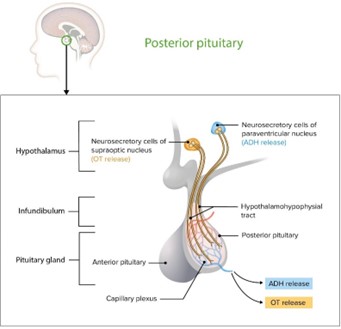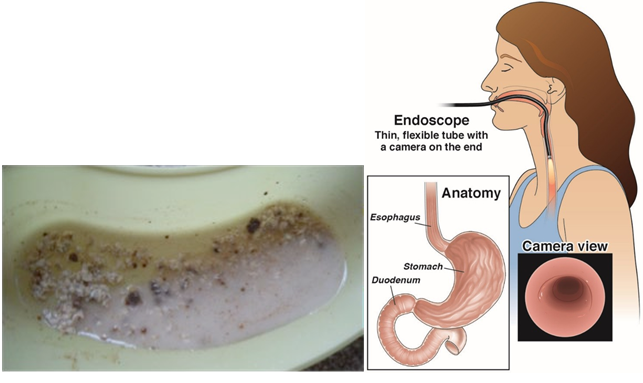What diagnostic test should the nurse anticipate for an older patient who is vomiting "coffee-ground" emesis?
Endoscopy
Barium studies
Angiography
Gastric analysis
The Correct Answer is A
"Coffee-ground" emesis is a term used to describe vomit that has the appearance of coffee grounds, which indicates that the vomit contains partially digested blood. This is a serious symptom that could be indicative of an upper gastrointestinal bleed. An endoscopy is a diagnostic test that allows healthcare providers to visually examine the upper gastrointestinal tract and identify the source of bleeding.
Barium studies and angiography are not typically used to diagnose upper gastrointestinal bleeds. Gastric analysis may be useful in other diagnostic situations, but it is not the most appropriate test for a patient with "coffee-ground" emesis.
Nursing Test Bank
Naxlex Comprehensive Predictor Exams
Related Questions
Correct Answer is D
Explanation
Demeclocycline is a tetracycline antibiotic that can be used to treat SIADH, a condition characterized by excessive water retention and a decrease in urinary output. Demeclocycline blocks the action of antidiuretic hormone (ADH), which can help increase urinary output and decrease water retention in patients with SIADH. Therefore, an increase in urinary output would indicate that demeclocycline is effective in treating the patient's SIADH. Options a, b, and c are incorrect because they do not directly relate to the mechanism of action of demeclocycline in treating SIADH.

Correct Answer is ["A","C","D"]
Explanation
Option b is not entirely correct because while bulk-forming laxatives contain fiber, they may not always be the best source of fiber, and their use should be individualized according to the patient's needs.
Option e is incorrect because while stimulants and saline laxatives can be effective for occasional constipation, they should not be used regularly or for an extended period without medical supervision as they can lead to dependence and other complications.

Whether you are a student looking to ace your exams or a practicing nurse seeking to enhance your expertise , our nursing education contents will empower you with the confidence and competence to make a difference in the lives of patients and become a respected leader in the healthcare field.
Visit Naxlex, invest in your future and unlock endless possibilities with our unparalleled nursing education contents today
Report Wrong Answer on the Current Question
Do you disagree with the answer? If yes, what is your expected answer? Explain.
Kindly be descriptive with the issue you are facing.

